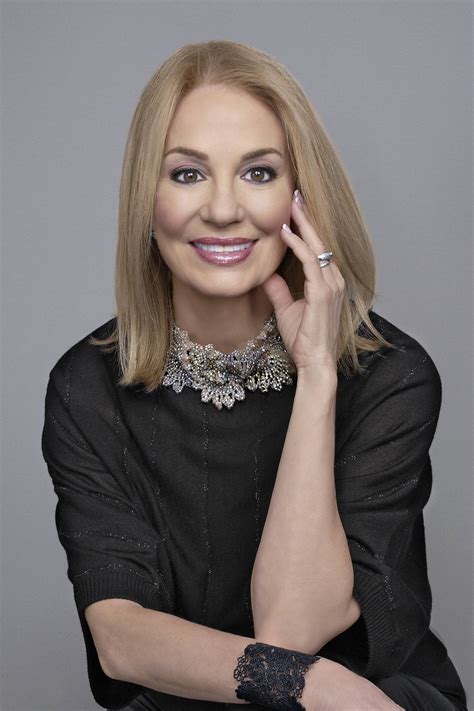A Quote by Suzanne Bates
The core philosophy we share with leaders is that everyone can develop the qualities in themselves. We all have strengths, but where we have gaps, we can make small changes in our behavior that make a big difference in how others see us as leaders.
Related Quotes
We have many years to eat and sleep, but how many years do we have to make a difference in the lives of others? That's the highest calling any of us can have: Living our life so as to intentionally add value to others. But to do this, we have to make ourselves more valuable. We have to keep learning, growing, developing as leaders and taking responsibility for being the change we want to see in the world.
Authenticity is about imperfection. And authenticity is a very human quality. To be authentic is to be at peace with your imperfections. The great leaders are not the strongest, they are the ones who are honest about their weaknesses. The great leaders are not the smartest; they are the ones who admit how much they don't know. The great leaders can't do everything; they are the ones who look to others to help them. Great leaders don't see themselves as great; they see themselves as human.
"Leadership" is a big topic today. We know that the world - nations and communities in addition to companies - needs more and better leaders. So I wanted to explore how leaders make a difference, how they can shift a negative cycle, turn around a losing organization, propel a team to victory when conditions aren't perfect. I saw that what leaders do is build confidence in advance of victory. Then the confidence they produce makes the hope of success turn into the reality of success, because people behave differently when they are surrounded by a culture of confidence.
Our sense of identity is in large measure conferred on us by others in the ways they treat or mistreat us, recognize or ignore us, praise us or punish us. Some people make us timid and shy; others elicit our sex appeal and dominance. In some groups we are made leaders, while in others we are reduced to being followers. We come to live up to or down to the expectations others have of us.
To my mind, you cannot speak about the need for leadership within our communities without being prepared to take on responsibility yourself. It's not enough to point the finger at those who have let us down and to expect others to come forward and fix our problems. Nor can anyone afford to call themselves a leader unless they truly have the interests of our community at heart. Too many people like to think they are leaders and too many are identified by the media as leaders who are not really leaders at all.
While it is almost certainly true that leaders ought to eat last, the evidence on the ever-widening difference between CEO and average employee pay and the enormous severance packages leaders obtain even as front-line workers see their economic well-being eviscerated makes a mockery of the idea that leaders do anything other than take care of themselves.
All of great leaders evidence four basic qualities that are central to their ability to lead: adaptive capacity, the ability to engage others through shared meaning, a distinctive voice, and unshakeable integrity. These four qualities mark all exemplary leaders, whatever their age, gender, ethnicity, or race.






























